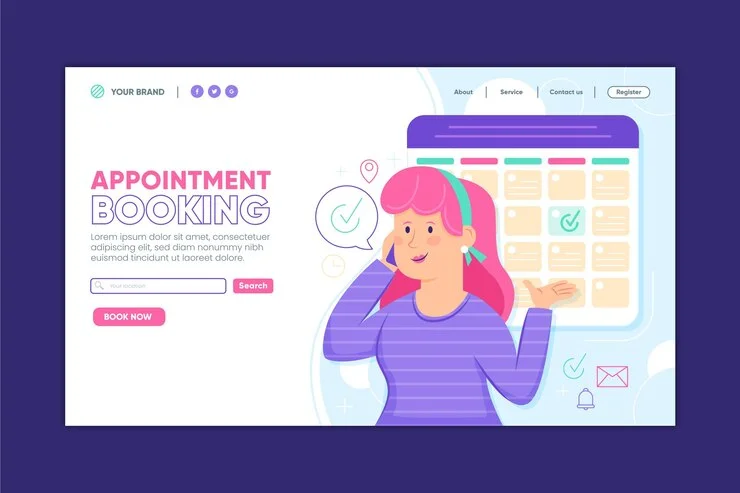Sales appointment cancellations are unavoidable in professional life, especially in sales, information technology, manufacturing, marketing & advertising, consulting, and service-based industries. While they can feel like setbacks, how you respond can strengthen relationships and open new opportunities. Handling sales meeting cancellations effectively demonstrates professionalism, adaptability, and respect for your client’s time—all crucial qualities in maintaining trust and driving success.
Actionable Strategies to Manage Appointment Cancellations Like a Seasoned Professional
Maintain Composure and Professionalism
Cancellations can be frustrating, but it is essential to respond calmly and professionally. A reactive or frustrated tone can damage the relationship, while a composed response helps preserve trust and opens the door for future interactions.
Your reaction reflects your brand. Staying positive ensures the client feels respected, even if they couldn’t honor the original commitment.
Example Response:
“Thank you for letting me know. I understand that unexpected things can come up. Let’s work together to find another time that suits you better.”
Inquire About the Reason for Cancellation
Clarifying why the appointment was canceled can help determine whether it was a temporary or deeper inconvenience. This insight allows you to adjust your approach, refine your strategy, or address unspoken concerns.
Avoid pressuring the client. Instead, express understanding and gently probe for feedback. For instance:
“I understand you needed to cancel. Is there something I can help with to make future meetings more convenient or valuable for you?”
Pro Tip: Patterns in cancellations—such as consistent timing conflicts or unclear agendas—can signal areas where your process might need improvement.
Respond Proactively with Rescheduling Options
When cancellations occur, don’t wait for the client to initiate rescheduling. Instead, take charge by proposing new dates and times. This shows initiative and keeps your relationship moving forward.
Provide 2-3 specific alternatives to make decision-making easier. For example:
“Would Wednesday at 2 PM or Friday at 10 AM work better for you? I can also accommodate early next week if that’s more convenient.”
Tools to Simplify the Process:
- Use scheduling platforms like Calendly or HubSpot to offer your availability and let clients book directly.
- Integrate reminders to reduce the chances of future cancellations.
Reaffirm the Value of the Meeting
Cancellations sometimes happen because the client needs to fully understand the benefit of the meeting. Take this opportunity to reinforce the value they’ll gain from your conversation gently.
When proposing new times, tie your meeting’s purpose to their goals or challenges. For instance:
“During our meeting, I’ll share strategies tailored to increase your team’s productivity by 25%. I’m confident you’ll find this session insightful and actionable.”
Bonus Tip: Ensure your agenda is clear and communicated ahead of time. An outlined purpose builds anticipation and commitment.
Prepare for No-Shows
No-shows can feel worse than cancellations because they do not allow for immediate action. After a missed meeting, follow up promptly and professionally.
Steps to Take:
- Send a polite follow-up message expressing understanding.
- Reiterate your willingness to reschedule.
“I noticed we missed each other for our meeting earlier today. I hope everything is okay on your end. Let me know when you can reschedule—I’d happily accommodate your schedule.”
Pro Tip: Have a contingency plan for no-shows. Use the reclaimed time productively, whether prospecting new leads, fine-tuning your pitch, or updating your CRM.
Automate Reminders to Prevent Cancellations
Set up reminder systems to reduce the likelihood of cancellations. Gentle nudges before the appointment help clients prepare and provide an opportunity to reschedule in advance if needed.
Effective Reminder Strategies:
- Send reminders 24 hours and 1 hour before the meeting.
- Use email, SMS, or calendar notifications to ensure visibility.
Example Reminder Message:
“Just a reminder about our meeting scheduled for tomorrow at 2 PM. I look forward to discussing how we can achieve [specific outcome]. Let me know if there’s any change in your availability.”
Track Cancellations and Trends
Documenting cancellations in your CRM or scheduling software is crucial for identifying patterns and improving your processes. For instance, frequent cancellations from specific clients suggest they need shorter, more focused meetings or a different approach to scheduling.
What to Track:
- Reasons for cancellations.
- Time slots with higher cancellation rates.
- Follow-up outcomes (e.g., rescheduled vs. lost opportunities).
Actionable Insight:
Use the meeting insights to optimize your sales appointment process. Consider offering midday or afternoon options if early morning slots are frequently canceled.
Keep the Relationship Warm
If a client cancels and doesn’t immediately reschedule, it’s crucial to maintain open lines of communication. Don’t let the relationship grow cold—stay in touch with light, value-added follow-ups.
Examples of Keeping Engagement Alive:
- Share relevant articles, case studies, or industry insights that align with their interests.
- Check-in periodically with non-sales-related messages, like:
- “Just wanted to share this article on [topic]. It reminded me of our last discussion.”
Leverage the Opportunity to Reflect and Improve
Every cancellation is a learning opportunity. Reflect on your process:
- Was the meeting scheduled too far in advance, leaving room for conflicts?
- Did you communicate the value of the appointment?
- Are you offering flexible and client-friendly scheduling options?
Continuous improvement ensures that cancellations decrease over time and are handled more effectively when they occur.
Stay Positive and Resilient
While inconvenient, cancellations should stay within your momentum. Reframe them as opportunities to refine your strategy, reclaim time for other priorities, or even strengthen your relationship with the client.
Mindset Tip:
Cancellations are often about timing rather than rejection. Staying optimistic will help you approach future interactions with confidence and enthusiasm.
Final Thoughts
Handling sales appointment cancellations like a pro is about staying calm, proactive, and solution-focused. By prioritizing the client’s needs, offering flexibility, and demonstrating value, you can turn cancellations into opportunities to build trust and deepen relationships.
With the right approach, you can move closer to your goals. For example, you could hire a sales appointment setting company to handle every canceled appointment.
Would you like this formatted for LinkedIn sharing or converted into an infographic for added engagement?







